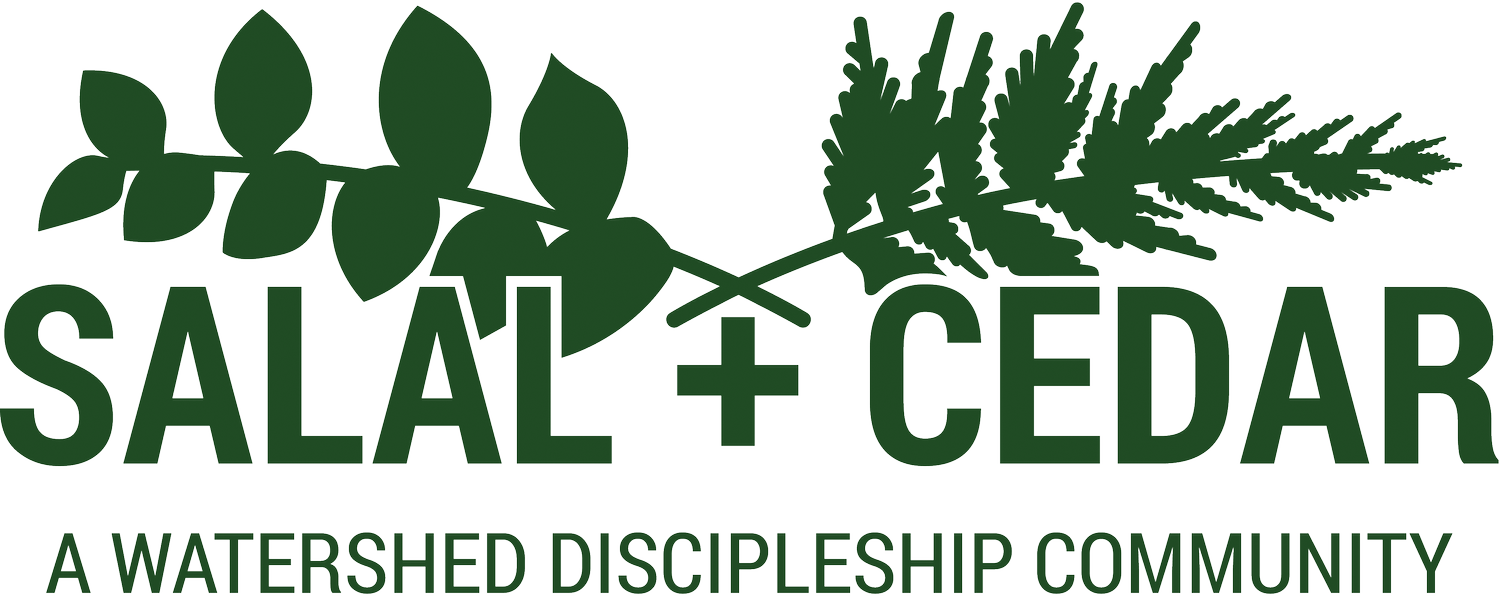Wild Lectionary is for those who want to preach on climate justice themes. In scripture, landforms, skies, waterways, and creatures are transformed. In the world around us they are transformed as well by the advancing global climate crisis. Repeatedly we are called to attend to the wisdom of the more-than-human world. Each week a different contributor offers commentary on the lectionary readings, suggestions for preaching, and links to additional material. We hope you will use and share these resources.
-
We are hoping to keep this resource going year-round. If you are interested in collaborating, e-mail Laurel.
-
For preachers who want to engage with scripture and with climate crisis here are some tools for approaching biblical texts.
Know and be rooted in your watershed. It has long been understood as good homiletic and exegetical practice to name your social location -the webs of relationship, power and identity which influence your approach to and understanding of scripture. It is perhaps equally important to be aware of your ecosystem location, how your experience of and connection to drought, harvest, storm, herding, and fishing are at play as you encounter these themes in scripture. What are the creature kin, the predators, the waterways, landforms and plants of your place and your heritage that help you to understand (or cause you to misunderstand) the Galilean fishing economy, the Cedars of Lebanon, the lion of Judah, the true vine, the Good Shepherd and the lamb of God?
Focus on Climate Justice. Credited to various activists from the global south, climate justice is a term that asserts that the impacts of global climate change and the work of responding to it are not borne equally. Racialized, impoverished, Indigenous, coastal and island peoples experience the greatest impacts while bearing the least responsibility and are at the forefront of movements for land defense, mutual aid, and corporate and governmental accountability (Gabbatis and Tandon, 2022). Bringing a climate justice approach to scripture means focusing not simply on “creation” or “the environment” but addressing the interrelationships between human and ecological exploitation, extraction, displacement, and inequity.
Apply Eco-Justice Principles. Norman Habel and the Earth Bible Project have identified six principles in scripture.
The Principle of Intrinsic Worth: The universe, Earth, and all its components have intrinsic worth/value
The Principle of Interconnectedness: Earth is a community of inter-connected living things that are mutually dependent on each other for life and survival.
The Principle of Voice: Earth is a living entity capable of raising its voice in celebration and against injustice.
The Principle of Purpose: The universe, Earth and all its components are a part of a dynamic cosmic design within which each piece has a place in the overall of that design.
The Principle of Mutual Custodianship: Earth is a balanced and diverse domain where responsible custodians can function as partners with, rather than rulers over, Earth to sustain its balance and a diverse Earth community.
The Principle of Resistance: Earth and its components not only suffer from human injustices but actively resist them in the struggle for justice.
Use an Eco-Feminist Lens. The Rev. Dr. Leah D. Schade “the eco-preacher” has developed four additional principles.
Focus on Earth-orientation rather than focusing strictly on humans, and particularly male humans. Read Scripture through a “green lens” to ascertain how texts may be oppressive or liberating to women, children, those most vulnerable, and the Earth community.
Proclaim the good news for both the human and other-than-human community of Earth. Analyze the impact and power that certain texts will have when preached in a community of faith within its ecological context.
Practice a hermeneutic of remembrance. Recover biblical traditions so that we can view the biblical story from an ecofeminist perspective, moving away from the inherent human-centeredness and male-centeredness of texts that assume subordination of Earth and women.
Engage creative actualization. Tell stories from Earth’s and women’s perspectives. Reformulate narratives lifting up the discipleship of equals among human communities and with our Earth kin.
Consider the Ecological Triangle of God, Non-Human Creation, and Humanity. Hilary Marlow proposes this alternative method of ecological engagement which allows the texts to speak for themselves. She asks:
What understanding does the text present of non-human creation (local or cosmic)?
What are the assumptions of the author about God’s relationship to the created world?
What effects do human actions have upon non-human creation and vice versa?
-
It costs approximately $275 CAD for the work of research, writing, editing, coordinating and hosting one week of resources on Wild Lectionary. If you have appreciated this faithful climate justice resource please consider sponsoring a page or asking your congregation to do so. It is a gift that benefits so many.

22nd Sunday After Pentecost, Year B: Authority in Creativity and Solidarity
Without ever mentioning the word, each text appointed for this day deals with authority. Who is it that has authority? From whence does that authority derive? Job longs to know why he is so afflicted, but God does not answer why these things happened. God answers by displaying his authority. This authority is not heavy-handed or tyrannical, nor is it derived from power and might. God’s authority is wrapped up in God’s as creator and labourer who is in continued relationship with all God’s creation.

Harvest Thanksgiving Year B
From the good of the earth and its harvest to our worries and relationship with the divine, this year’s Harvest Thanksgiving readings are rich with connections. Joel’s proclamation of joy first for the earth and then for the children of Zion reminds us of the centrality of the more than human parts of creation while also affirming, along with Psalm 126 and Matthew 6, God’s presence in providing and caring for humanity. 1 Timothy’s call to pray for rulers connects the importance of peace with God’s relationship to humanity. As many celebrate and give thanks for the harvest in worship this week and many throughout the world continue to suffer from the devastation of increasingly extreme weather, centering on God’s relationship with the land opens possibilities for accountability, repentance, and calls to action.

Sunday, October 6, 2024 – A New Creation is Everything!
How do you intend to observe this Sunday, and what readings will you choose to preach from? According to the Revised Common Lectionary of The Episcopal Church and the Anglican Church of Canada, October 6, 2024 is the 20th Sunday after Pentecost. However, this year, many parishes that have been observing the Season of Creation may opt to transfer the celebration of St. Francis Day from Friday, October 4, to Sunday, October 6, as a way of marking the end of the Creation Season.

19th Sunday after Pentecost Year B: Both Prayer and Action
The readings for Propers 21 (the 19th Sunday after Pentecost) convey a sense of emergency. Given the grim news of the climate emergency, each month from June 2023 to July 2024 was the hottest on record (CBC July 8, 2024), and its catastrophic effects from extreme weather, warming oceans and loss of habitat, resulting in misery and suffering to all life, both human and nonhuman, the readings stir preachers and congregations to act and pray. My spiritual perspective is that both action and prayer are needed and complement each other. The readings today might offer opportunity to explore that relationship in the context of climate justice.

18th Sunday after Pentecost, Year B: Texts for When the Choices Facing Us are Increasingly Stark
At first glance, this Sunday’s texts seem to offer relatively little illumination of the themes centered in this Wild Lectionary, much less during the Season of Creation. In particular, Proverbs 31’s portrait of womanhood appears to articulate quite the opposite of ecofeminism, and is widely so interpreted. Still, an earth-centered hermeneutic (interpretive strategy) can unlock deep wisdom carried by these old scriptures.
We are grateful to the sponsors who make Wild Lectionary possible:


